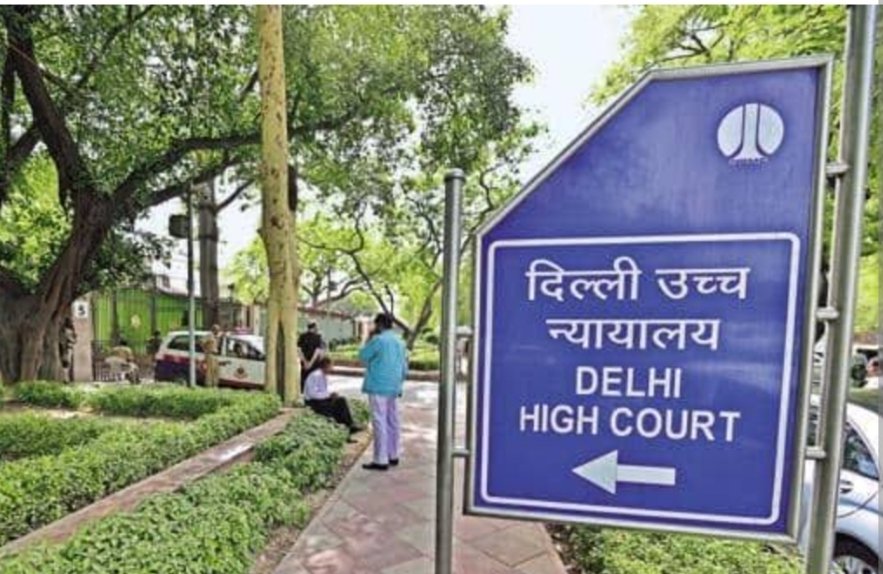Can a sanyasi (renunciate) own copyright in the literary works authored by him? Does renunciation of all worldly desires fall within its ambit a creation of intellectual labour, knowledge and skill? The Delhi High Court has settled the said question, in a recent judgment of The Bhaktivedanta Book Trust of India v. www.friendwithbooks.co.
The Copyright Act, 1957 does not draw a distinction between a work by an ordinary person and the work by a sanyasi. In such a case, who is the owner of a work having copyright protection once the person creating such work renounces the world? Furthermore, the very logic behind according copyright protection to a work, apart from safeguarding the interests of the owner/author, is that such work can be assigned or licensed to a third party in future; the same consequentially creates a loop for commercial piggy-banking of the works. At present, there is no law or regulation dealing with the copyright protected works of a sanyasi; however, the Delhi High Court has, by referring to a catena of judgments held that the rights granted under the Act, even in the case of a sanyasi relinquishes only by the process known to law.
The Bhaktivedanta Book Trust India (“Plaintiff”), aggrieved by the copyright infringement by www.friendwithbooks.co (“Defendant”) of the books and artworks owned by the Trust, had approached the Court in December 2020, to permanently injunct the Defendant from performing any act amounting to infringement of the copyright owned by the Trust. The Trust was established in 1972 by A.C. Bhaktivedanta Swami Prabhupada who had become a sanyasi in 1959 and relinquished his worldly possessions. In 1975, the copyright in the books and works authored by Swami Prabhupada were assigned to the Trust. An objection raised by the Defendant was that post renunciation, Swami Prabhupada could not own copyright in his works, as renunciation is similar to civil death and there could be no ownership of any property. The Trust asserted that no statute or a judge made law bars a sanyasi from holding private property including intellectual property. Additionally, it was argued that a situation of civil death arises in a situation where the deceased has no successor.
The decision of the Court is a cocktail of Section 21 of the Act (dealing with relinquishment of copyright) and judicial determination on the aspect of a sanyasi owning and bequeathing a property. The crux of the present decision is that the act of becoming a renunciate does not establish a cause-and-effect relationship with the rights in the works having copyright protection. Section 21 of the Act provides for a specific manner in which the author of a work may relinquish the rights comprised in copyright. This provision coupled with Section 17 of the Act is central to the Court’s decision that once a person becomes a repository of the right, the right stands extinguished only and only by the process of law as more specifically provided under Section 21 of the Act.
The Court also held that even if there is a situation where a person subjects himself to a monastic order by way of which his rights and property would be transferred in accordance with those rules, there need to be evidences highlighting a specific manner/mode by which his property would dwell upon the beneficiary. However, in the present case, the Trust became the assignee of the rights by virtue of a specific written assignment by Swami Prabhupada. Consequentially, the Court decreed the suit in favour of the Trust restraining the Defendant from any act amounting to infringement of copyright in books and artworks owned by the Trust.
While one may argue that since in 1959, Swami Prabhupada relinquished his worldly possessions, the aspect of ‘worldly possession’ shall include within its ambit his lectures, books so authored and other literary works; and therefore, he could not own the copyright in those works. However, if the judgment would have affirmed the same, that once a person renunciates his worldly desires he does not have ownership over copyright in the works authored by him, it would have had large consequences. More particularly the ownership of the works created by sweat, toil, wisdom and which have intellectual labour in their foundation would be left hanging in the air. The ultimate effect of the judgment and the interpretation therein can also be seen from another spectacle. The protection of original literary, dramatic, musical and artistic works and cinematograph films is the very essence of the Act. An aspect related to the same is that the author of a literary work enjoys the benefit of licensing/assigning the said work consequentially. The present judgment of the Court is in line with it. Had the judgment been passed otherwise, it might have opened floodgates for unauthorised and unintended commercial exploitation of works authored by a sanyasi.
Author: Dayita Panicker

